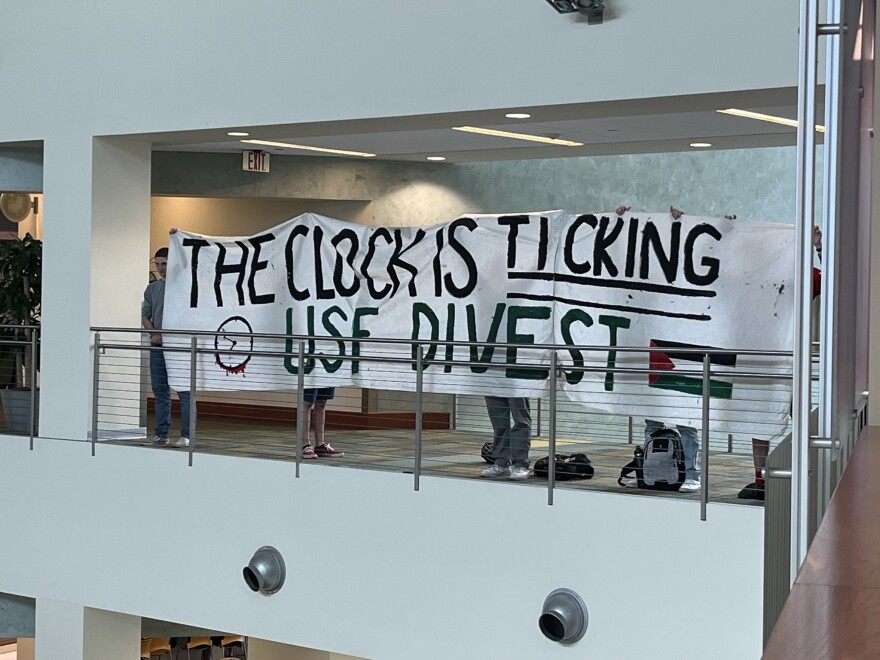A group of students at the University of South Florida has been holding a hunger strike since March 18, demanding the university end its investments in companies they say are helping Israel in the war in Gaza.
Now, an undisclosed number of the original 18 strikers remain, after multiple strikers were hospitalized last week.
The organizer of the strike, Alina Atiq, had to drop out due to her weight dropping to seventy pounds.
Last week, around a dozen new students joined the effort. One of them already needed hospitalization Sunday night.
In an Instagram post Saturday, the strikers said that they were denied health care by the USF Student Health and Wellness Center.
But in an email to WUSF, USF Director of Media Relations Althea Johnson said, “no students have been, or will be, denied access to care.”
The statement also said, “In recent days, several participants have sought medical care from the USF Student Health & Wellness Center. In each case doctors have provided treatment or recommended that the patient visit a local hospital or emergency room if their symptoms are beyond the services offered in our on-campus facility.”
Johnson added that the university repeatedly encouraged the students participating in the hunger strike to consider an alternative form of protest that does not put their safety at risk.
The strikers said they are planning to continue actions throughout this week and next week. This includes presenting ideas to the student government and possibly starting a petition.
While the group has a number of demands, including university president Rhea Law publicly calling for a cease-fire in Gaza, their largest complaint is with USF investing in five companies: Boeing, Hewlett-Packard, Lockheed Martin, Northrop Grumman and Caterpillar.
The students began their strike on March 18 with a sit-in at the Marshall Student Center before a number of them spoke at USF’s Board of Trustees meeting.
Some students who addressed trustees said that they had “blood on their hands” for their perceived lack of action in aiding those affected by the war.
Will Weatherford, the Chairman of the Board of Trustees, responded.
“I appreciate and respect your right to have a voice. And I appreciate that you're as passionate as you are about this. There's nothing wrong with that,” Weatherford said. “I don't appreciate language that is offensive. I don't appreciate people calling us liars.
“And I don't appreciate the thought that we can do something that we can't actually do -- because we don't actually invest directly in the stocks that have been portrayed.”
Weatherford also cautioned the students and their parents about the dangers of their hunger strike, saying there were more productive ways to have their voices heard.
Students for Socialism had originally planned the hunger strike, but university officials issued a cease and desist letter that stopped that effort. Instead, the students came together with no affiliation with any campus organization in order to hold the strike.
Copyright 2024 WUSF 89.7. To see more, visit WUSF 89.7. 9(MDA3NTgyODY4MDEzMDcxMjU4NjBlODYwNg001))

